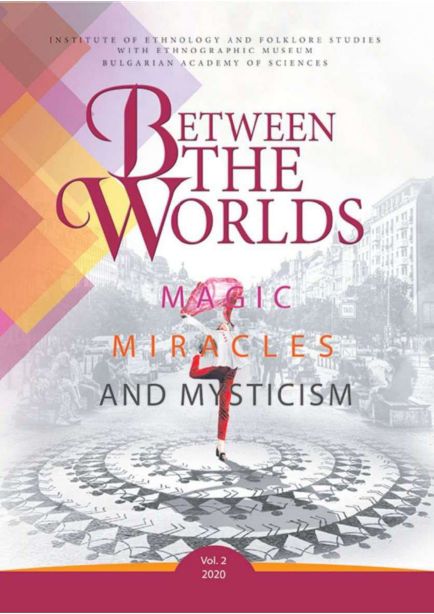Sеmomit in a New Incantation Bowl
Sеmomit in a New Incantation Bowl
Author(s): Gaby AbousamraSubject(s): History, Anthropology, Social Sciences, Archaeology, Cultural history, Customs / Folklore, Ethnohistory, Local History / Microhistory, Cultural Anthropology / Ethnology, Culture and social structure
Published by: Институт за етнология и фолклористика с Етнографски музей при БАН
Keywords: magic bowls; Aramaic incantation; angelology; Ṣemomit; Biblical Hebrew
Summary/Abstract: Magic bowls bear spells meant to disable demons and to protect people from all sorts of bodily and mental illness. Most of these bowls were found in Mesopotamia and dated approximately to the 5th and 7th centuries AD. This kind of magic spell was practiced by the different communities living in this area: Jewish, Christian, Mandaean, and Manichaean. The present research concerns a new incantation text which, as far as we know, has no parallel in publications on magical bowls. The text is an incantation to establish and protect the descendants of Duday, daughter of Makanta, from all kinds of afflictions and from evil angels whose names are mentioned here for the first time. Palḥašat and Abaddon, the good angels, are invoked to redeem and save Duday and her sons from Ṣemomit who snatches the newborns from the breast of their mothers and kills them. The text ends with a Biblical Hebrew verse (Zechariah 3: 2) which is used frequently in this kind of literature.Magic bowls bear spells meant to disable demons and to protect people from all sorts of bodily and mental illness. Most of these bowls were found in Mesopotamia and dated approximately to the 5th and 7th centuries AD. This kind of magic spell was practiced by the different communities living in this area: Jewish, Christian, Mandaean, and Manichaean. The present research concerns a new incantation text which, as far as we know, has no parallel in publications on magical bowls. The text is an incantation to establish and protect the descendants of Duday, daughter of Makanta, from all kinds of afflictions and from evil angels whose names are mentioned here for the first time. Palḥašat and Abaddon, the good angels, are invoked to redeem and save Duday and her sons from Ṣemomit who snatches the newborns from the breast of their mothers and kills them. The text ends with a Biblical Hebrew verse (Zechariah 3: 2) which is used frequently in this kind of literature.
Journal: Between the Worlds
- Issue Year: 2/2020
- Issue No: 2
- Page Range: 455-464
- Page Count: 10
- Language: English

